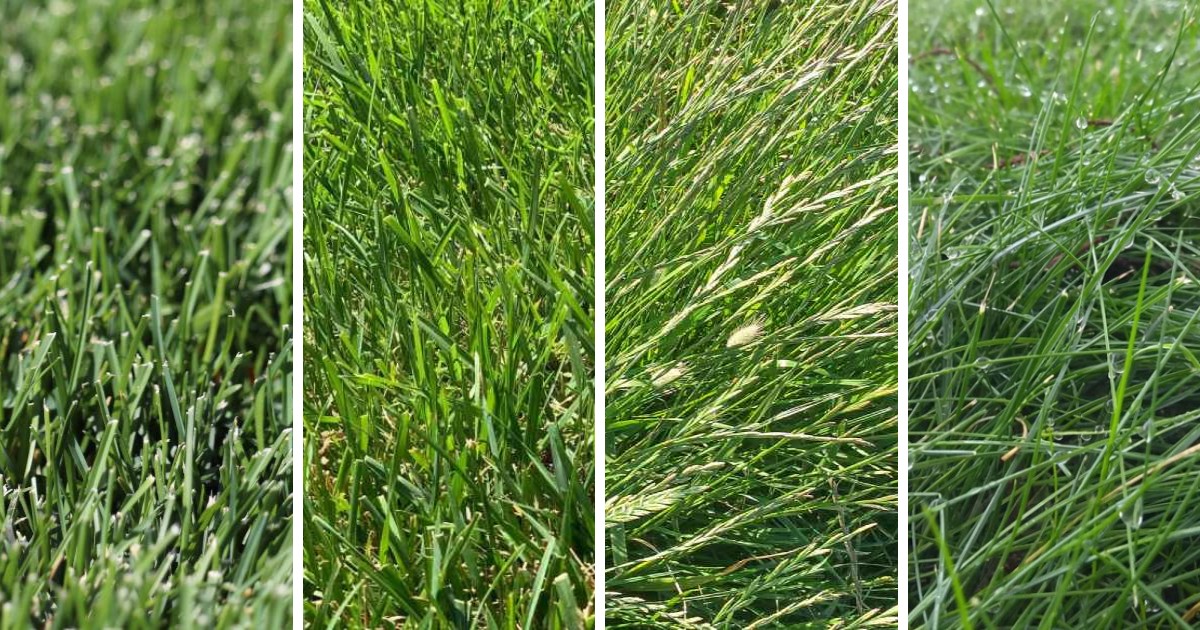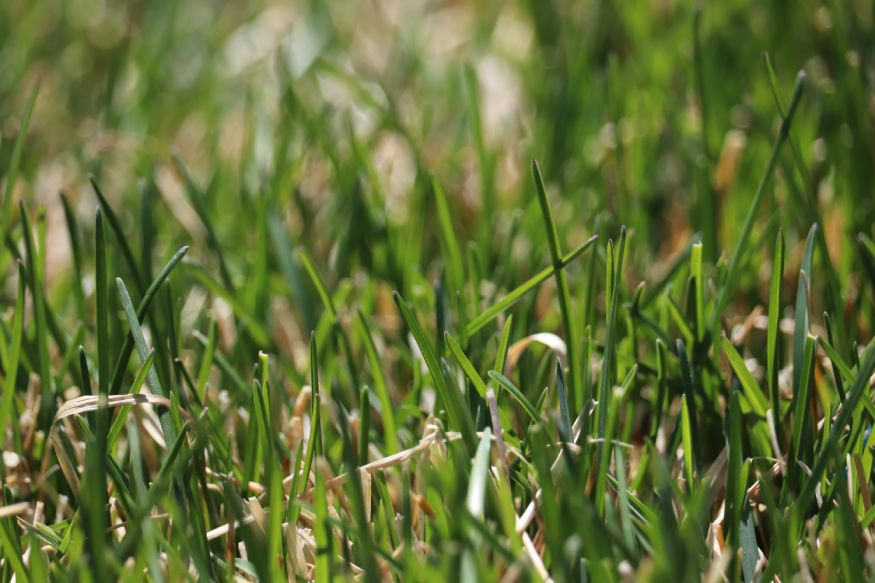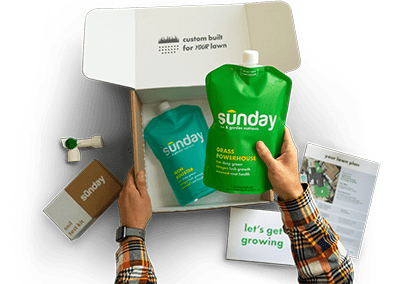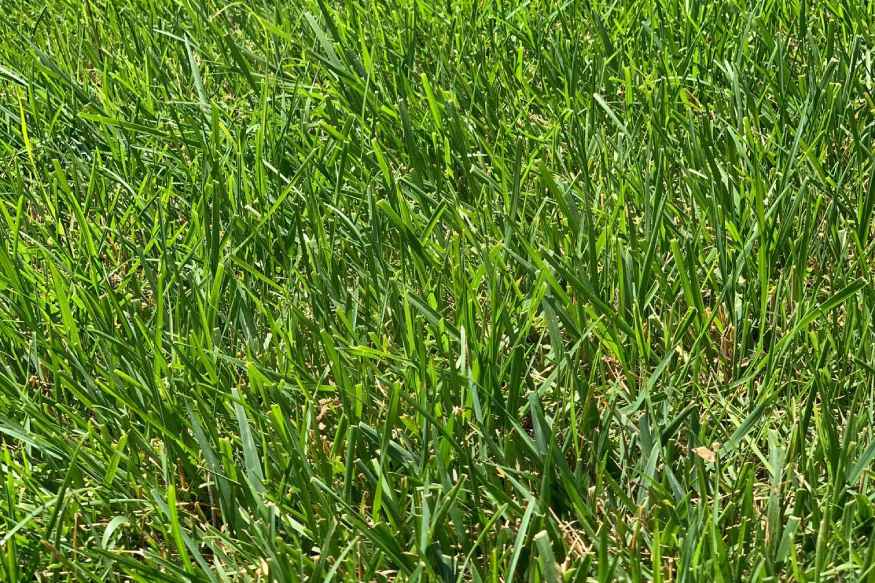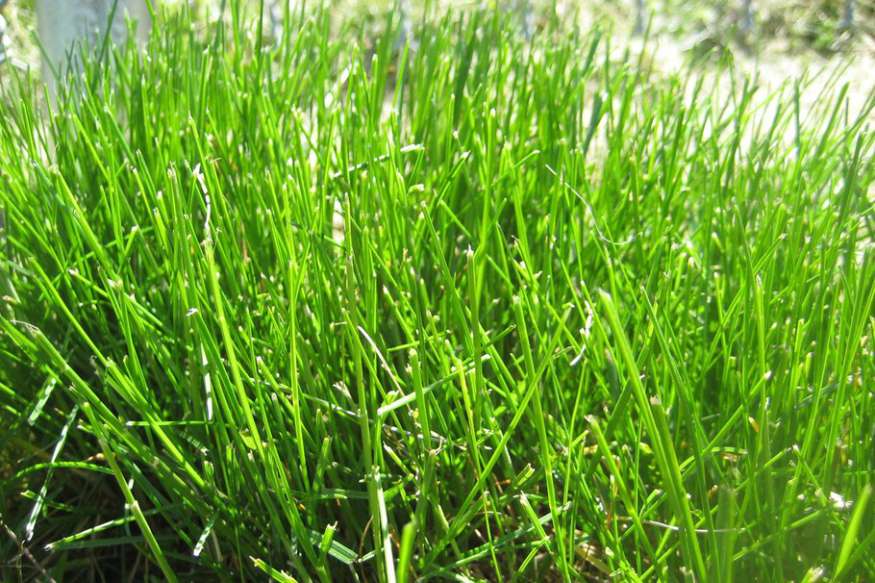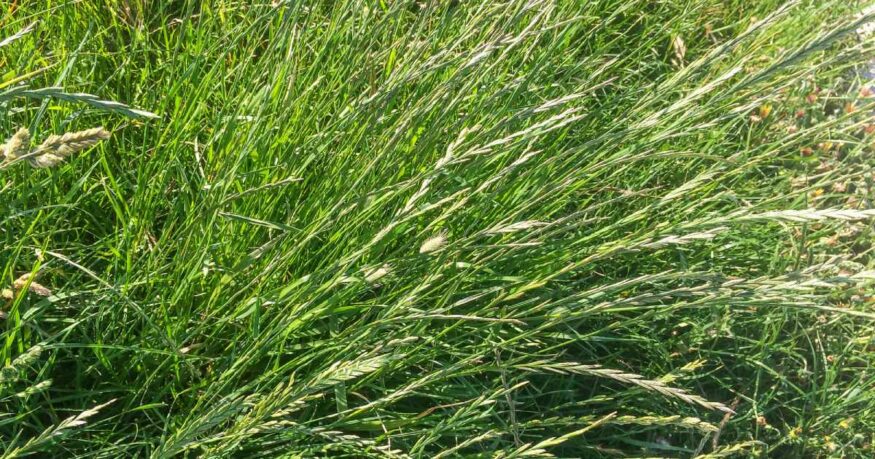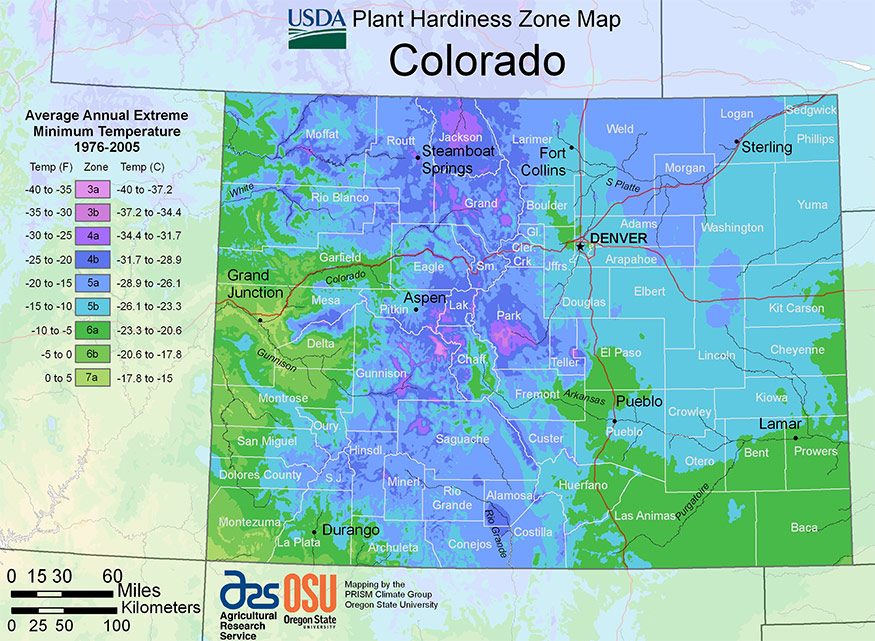Looking to create a lush, green lawn in Colorado? The answer is simple: Kentucky Bluegrass. But wait, before you rush out to buy your seed, there are some important factors to consider.
While Kentucky Bluegrass may be the most popular choice for Colorado lawns, it’s not necessarily the best option for everyone. With the unique challenges of Colorado’s climate and soil conditions, it’s essential to explore all your grass options carefully.
In this article, we’ll take a look at the best grass types for Colorado and what you need to know to create a thriving lawn in this beautiful state.
Kentucky Bluegrass
| Also Known As | Poa pratensis L. |
| Type of Grass | Cool season perennial |
| Optimal Zones | Northern cool season zone, transition zones |
| Root Structure | Shallow |
| Winter hardiness | Excellent |
| Shade tolerance | Poor to Good |
| Water Requirements | High |
| Drought Tolerance | Poor |
| Self Repair Capacity | Excellent |
| Overall Maintenance Requirements | High |
Why Kentucky Bluegrass is a good choice for Colorado
Colorado residents who want a lush, green lawn can rest easy knowing that they have a reliable ally in Kentucky bluegrass. This grass species is the most widely used lawn grass in Colorado for good reason. Its fine, blue-green blades and dense turf are both pleasing to the eye and comfortable on the feet. Kentucky bluegrass is a cool-season grass that thrives in all types of climates, making it a versatile choice for a variety of landscape designs.
One of the main reasons why Kentucky bluegrass is an excellent option for Colorado lawns is its resilience. This grass species spreads rapidly thanks to its rhizomes, creating a sturdy turf that can withstand heavy foot traffic and other forms of damage. Furthermore, Kentucky bluegrass is extremely cold-tolerant, meaning that it can survive the harsh winters of Colorado with ease. While it does require regular aeration to combat thatch build-up, this is a small price to pay for such a resilient and visually pleasing grass.
Of course, there are some downsides to using Kentucky bluegrass. It can be prone to pests and disease, such as grubs and chinch bugs. As a result, it’s important to use eco-friendly lawn care practices to eliminate these nuisances and ensure the long-term health of your lawn. Additionally, some varieties of Kentucky bluegrass require full sun to thrive, while others can handle total shade. Homeowners may want to consider complementing their Kentucky bluegrass with perennial ryegrass for a more versatile landscape.
All in all, Colorado residents can trust Kentucky bluegrass to deliver a beautiful, resilient lawn that can withstand the state’s unique climate. Its ability to spread quickly and create a thick turf is especially noteworthy, as is its softness underfoot.
Get an organic lawn care plan designed just for your yard.
Use the code EHG20 to save $20!
Tall Fescue
| Also Known As | Lolium arundinaceum (formerly Festuca arundinacea) |
| Type of Grass | Cool season perennial |
| Optimal Zones | Northern through transition zones |
| Root Structure | Deep |
| Winter hardiness | Excellent |
| Shade tolerance | High |
| Water Requirements | Medium to High |
| Drought Tolerance | Excellent |
| Self Repair Capacity | Limited |
| Overall Maintenance Requirements | Low |
Why Tall Fescue is a good choice for colorado
Tess Fescue grass is a hardy and adaptable species that is gaining popularity for its resilience in various climates. Its deep root system can reach up to 2-3 feet, making it an excellent choice for Colorado’s arid climate as it can withstand heat and drought better than most cool-season grasses.
Additionally, tall fescue can tolerate shade and has low thatch formation, ensuring a fast-growing and hardy lawn. However, it may not be the best choice for high-traffic areas as it does not self-repair easily from damage. Good soil drainage is also essential to prevent disease and pests in wet conditions.
Despite these limitations, tall fescue remains a top pick for Colorado residents seeking a low-maintenance lawn that requires minimal watering. It is particularly well-suited for areas with heavy foot traffic from kids and pets without becoming damaged. Moreover, tall fescue can grow in all soil types regardless of pH level as long as the soil drains well.
While overseeding may be necessary to promote thick growth and eliminate bare spots, tall fescue is slow-growing and won’t invade gardens or flower beds. Overall, this versatile and resilient grass species has become a favorite among Colorado residents seeking a hardy lawn that doesn’t require much upkeep.
Fine Fescue
| Also Known As | Hard fescue, strong creeping red fescue, slender creeping red fescue, sheep fescue, chewings fescue; Festuca L. |
| Type of Grass | Cool season perennial |
| Optimal Zones | Northern zones |
| Root Structure | Medium |
| Winter hardiness | Excellent |
| Shade tolerance | Excellent |
| Water Requirements | Medium to High |
| Drought Tolerance | Excellent |
| Self Repair Capacity | Limited |
| Overall Maintenance Requirements | Low |
Why Fine Fescue is a good choice for colorado
Another choice for Colorado residents is fine fescue, a low-maintenance and drought-resistant grass that’s perfect for busy homeowners. This species thrives in shaded areas, making it well-suited for such conditions.
One major benefit of fine fescues is its minimal need for fertilizer or moisture, making it an eco-friendly option that’s ideal for Denver’s unique climate. It can survive extreme cold and can be planted in rocky and sandy soils due to its cool-season nature. Its long, narrow blades give it a distinctive look that is both appealing and easy to maintain.
Despite being resilient and low-maintenance, fine-blended fescues do have some downsides. For instance, they are not very heat-tolerant and prefer shade over direct sunlight. Also, they are prone to fungi such as red thread and dollar spot in wet conditions, necessitating good soil drainage. Finally, they don’t hold up well under heavy foot traffic, so families with active kids and pets may want to consider other options.
Nevertheless, fine-blended fescues remain popular among Denver homeowners seeking an eco-friendly and low-maintenance grass species. Whether you have a shaded or rocky property, this grass can flourish with minimal care and maintenance. Just ensure you have sharp mower blades since its dense turf can be challenging to cut. In summary, fine-blended fescues are hardy and adaptable grass species that suit Denver’s unique climate and terrain well.
Get an organic lawn care plan designed just for your yard.
Use the code EHG20 to save $20!
Perennial Ryegrass
| Also Known As | Lolium perenne L. |
| Type of Grass | Cool season perennial |
| Optimal Zones | Mild northern zones |
| Root Structure | Deep |
| Winter hardiness | Good to excellent |
| Shade tolerance | Moderate |
| Water Requirements | High |
| Drought Tolerance | Good |
| Self Repair Capacity | Excellent wear tolerance |
| Overall Maintenance Requirements | Moderate to high |
Why Perennial Ryegrass is a good choice for Colorado lawns
Perennial ryegrass is a popular choice for many Colorado homeowners seeking a durable and resilient grass species that can withstand heavy foot traffic. Its narrow, durable blades resist fading, and it boasts a vibrant green hue almost all year long, making it a common choice for commercial settings like golf courses and parks.
This cool-season grass germinates quickly and establishes itself rapidly, making it an attractive option for both permanent and temporary lawns. Unlike Kentucky bluegrass, it does not form large amounts of thatch and can grow in poorly drained soil, making it an eco-friendly and low-maintenance turf grass that requires little aeration and upkeep.
However, perennial ryegrass is not without its drawbacks. It is highly prone to fatal disease and pest infestations like gray snow mold and Japanese beetles, and it struggles to survive cold, dry winters. It also has higher watering and fertilizer needs compared to most other grasses, which can make it less eco-friendly and more expensive to maintain over time.
Despite its limitations, perennial ryegrass remains a versatile and adaptable grass species that is well-suited for high-traffic areas in Colorado. Whether you’re looking for a permanent or temporary lawn, this grass can help you achieve the lush green lawn you’ve always wanted, with its quick establishment, resistance to thatch formation, and vibrant appearance.
Colorado’s Climate and Growing Challenges
Growing a lawn in Colorado can be a challenging task due to the state’s unique climate and soil conditions. However, with proper care and maintenance, it is possible to cultivate a lush and healthy lawn that can withstand the challenges posed by the state’s environment.
Weather Conditions
Cultivating a lawn in Colorado can be challenging due to the state’s weather conditions. The arid climate, with low humidity and intense sunlight, can rapidly dry out lawns. Moreover, the high altitude of Colorado means that the air is thinner and drier, making it tougher for plants to absorb water and nutrients from the soil.
Soil Conditions
The soil conditions in Colorado can also hinder lawn growth. The state’s soils are frequently highly alkaline, with a high pH level that can obstruct plants’ access to crucial nutrients.
Additionally, numerous soils in Colorado lack organic matter, making it arduous for grass to establish deep roots.
Other Growing Challenges
Aside from weather and soil conditions, various other factors can make growing a lawn in Colorado challenging. For instance, the state is susceptible to droughts, which can make it arduous to maintain a green and healthy lawn.
Furthermore, numerous regions in Colorado are prone to erosion, which can lead to soil washout and hinder grass from taking root.
Get an organic lawn care plan designed just for your yard.
Use the code EHG20 to save $20!
